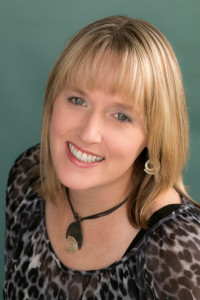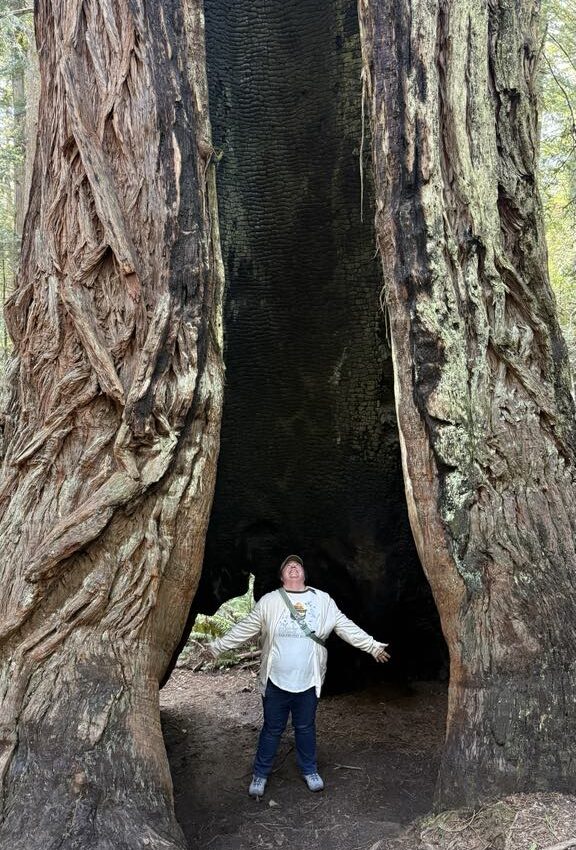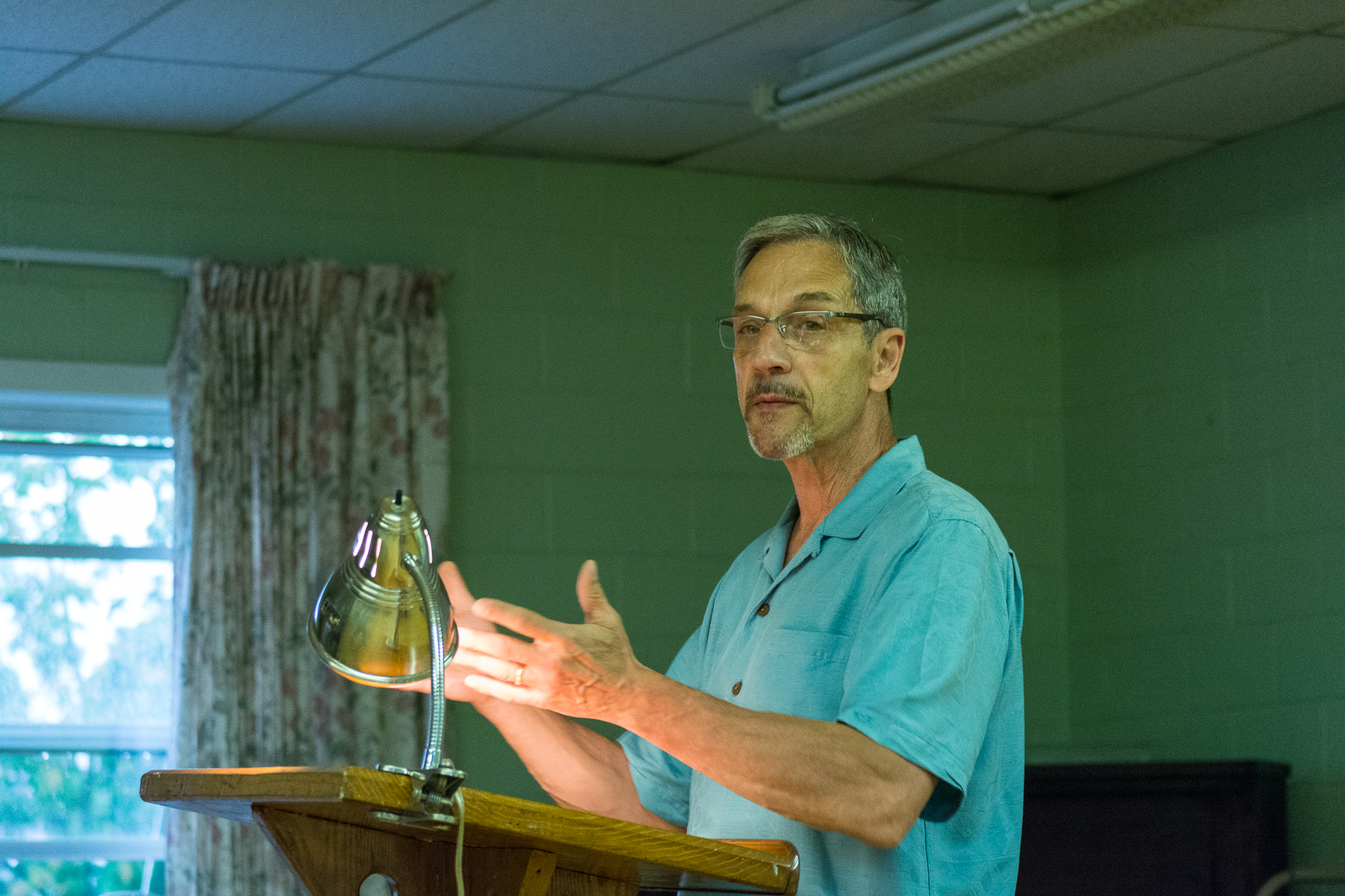Until I walked into a UCLA Extension personal essay class in January 2013 when I was 39-years-old, I was an unpublished perfectionist with a fear of failure so debilitating I hadn’t written a word in two years. I was a writer who didn’t write, and I didn’t consider myself a real writer. But what is a real writer?
At the time I thought it was someone who was published, had an agent and a book tour scheduled, and spoke on panels. A writer was someone who was better than me. I wasn’t a real writer because I didn’t scribble my life into a daily journal. I didn’t outline. I never wrote a first draft by hand, nor did I write it from start to finish without editing. I didn’t keep a list of highfalutin vocabulary words, and I didn’t post inspirational quotes on a bulletin board above my desk. And I never spread note cards across my bedroom floor to organize a timeline for the Great American Novel. I was doing it wrong.
Now I consider anyone who has a passion for writing a real writer. A writer jots dialogue on napkins, publishes annual bestsellers, or, like most of us, falls somewhere in between. Now I realize each writer’s process is the right process. I don’t write every day. I trust if the words aren’t coming one day, they will the next. I have a fresh perspective after stepping away from the material, and real-world experiences are an integral part of my writing life. Being a writer is about making meaning out of one’s surroundings, not stockpiling an impressive list of publishing credits. Yet, for me, publishing is still the goal.
Three-and-a-half years ago, I needed encouragement, and I received it from a mentor and a class of peers who provided constructive feedback for an essay that, after countless revisions and 21 rejections, would later be nominated for a Pushcart Prize.
I roll my eyes at platitudes like “believe in yourself” and “never give up” and “follow your dreams” because goals shift with age and a kernel of talent helps. Not everyone can receive a Nobel Prize or be on a first-name basis with Oprah. Nor does everyone need to reach that level of public success to be happy. But I could not have anticipated that after walking into that UCLA class, I would go on to publish a handful of essays; write, workshop, and edit a 79,000-word essay collection; complete a book proposal, and pitch an agent in person—all in the span of three years. If I can do it, anyone who works hard to hone her craft can do it too. When I found my voice, something clicked. The element of those clichéd Oscar speeches that turns out to be true is persistence does pay off, even if it takes a really long time.
Since I began submitting my work, I have received 71 rejections. When I reach 100, I may throw a party. As my writing mentor says, rejections deserve a “congratulations” because it means, “You’re doing the work.” The sting of rejection—or worse, silence—is worth it when on the 16th “send,” an editor responds within hours, saying, “I love this,” and publishes the piece within a week. The pain of dismissal lessens the more I submit. After a “no,” I submit to the next publication on my list right away. I could not have done that before 2013 without the support of a cultivated literary community.
There are exceptions. While I shouldn’t take rejection personally because every editor has distinct tastes, sometimes a harsh rejection sets me back—or is so off-track I have to laugh. Of the 20 literary agents I’ve queried online, one read my book in a day and liked it but asked for a complete content overhaul, and one requested essay samples, then said, “While I love your pitch, I unfortunately didn’t connect with your voice; the bluntness was somewhere between terse and stilted, instead of humorous.” The essays I’d sent her were about a) my failed six-month marriage to an addict, and b) a dead lover. Needless to say “humorous” wasn’t my aim. Next!
The most recent distressing rejection resulted in a rethink of what I learned from my short marriage. After outside feedback, tears, and a long nap, I cut my marriage essay in half. At 6,000 words, I thought it was ready. An editor read it and said, “It didn’t come off as polished as I would have liked.” It was too “cerebral”; she wanted more “feeling.” I had spit-polished the piece until I could see my reflection. For the next 24 hours, I was in “I quit” mode, but then I reread her comments through a less emotional lens and realized I could delve deeper, even though I didn’t agree with her take. Then I had a breakthrough that hadn’t occurred to me in the 10 years since my divorce: When my husband was sober after our split and finally spoke the truth, I didn’t believe him. I was enveloped in the warped world of denial. It was an “a-ha” moment I wouldn’t have had if an editor hadn’t sent criticism. I’m currently submitting a new version elsewhere. Trust editors, but trust your instincts too; it’s your voice after all.
I fear rejection, but I also fear success. The first time I published a personal essay online, my anxiety skyrocketed. I waited for judgment. I waited for a character assassination. I waited for a hatch to open under my feet, sending me plummeting into the earth’s core. Nothing happened. No one freaked out but me. I became resolved to submit again, and while I’m still nervous when a new essay goes live, I have the publishing bug; it’s a high. People call me brave. I’m not brave. I’m determined.
There’s no timeline for success, like there’s no timeline for love. It took me years to see this. I grew up with the shoulds crowding my brain: I should be married with children by this age. I should have a book published by now. In my 40s, I have one (mostly) unpublished manuscript, no husband, no children, and no house. If I hadn’t taken a circuitous route through early adulthood, the content for my manuscript would not exist. Everyone has her own trajectory, and publishing is like the slow drip of molasses, so be patient. Here are some other tips:
- Be inspired by others, but don’t compare yourself to them. As a teenager, I compared myself to a National Merit Scholar who went on to attend Yale and even now, when I read a stellar book written by a younger author, I feel like a failure. This is not productive. Envy should motivate rather than halt progress—and often does.
- When writing, don’t worry about an audience. Once, I heard an author say she writes for an audience of one: herself. It was a revelation. Write what’s burning inside you and your audience will follow.
- Immerse yourself in the writing world. Go to conferences. Attend literary salons and readings. Find a workshop and a mentor. Nurture your best readers. Talk to everyone. I once sat next to an editor at a conference, and I inadvertently pitched an essay in casual conversation. She published it.
- Ask for what you want—and for what scares you most. When I was included in The Best Advice in Six Words and saw they were touring, I emailed the editors and asked if I could participate. I ended up sharing a story at Dave Eggers’ studio in San Francisco and signing books with Piper Kerman at Book Soup. And all I did was ask.
- Keep a blog. After I finished a draft of my essay collection, I wrote a blog about the journey. An editor from Brevity sent me a private message on Twitter to ask if she could publish it. Dinty Moore then gave me notes to hone the piece for their site, an unexpected delight.
- Collect samples of cover letters and book proposals from other writers. I wouldn’t have been able to write the marketing section of my book proposal if I hadn’t had an excellent model. Now it’s one of the better sections of my proposal.
- When it sparkles, send out your work. I know more than one unpublished genius who composes stunning, witty prose, and yet hoards it instead of sharing it with the world. Don’t let fear stop you. Hit send!
I’m a middle-aged writer without a published book, but despite how often I hear “essay collections are hard to sell,” I know they do because I read them all the time. It’s not a matter of if I publish my book, it’s when. Writing and publishing are the long game; be ready to play. Here’s my prosaic chestnut: It’s never too late!
 Chelsey Drysdale is an essayist and editor in Southern California. Her essays have appeared in The Manifest-Station, Book Lovers: Sexy Stories from Under the Covers, Bustle, Brevity, Black Fox Literary Magazine, Luna Luna Magazine, and Reservoir Journal. She is a contributor in The Best Advice in Six Words and CRUSH: Writers Reflect on Love, Longing and the Lasting Power of Their First Celebrity Crush. She is a Pushcart Prize and Best of the Net Anthology nominee and is seeking representation for her completed essay collection, Yes Girl.
Chelsey Drysdale is an essayist and editor in Southern California. Her essays have appeared in The Manifest-Station, Book Lovers: Sexy Stories from Under the Covers, Bustle, Brevity, Black Fox Literary Magazine, Luna Luna Magazine, and Reservoir Journal. She is a contributor in The Best Advice in Six Words and CRUSH: Writers Reflect on Love, Longing and the Lasting Power of Their First Celebrity Crush. She is a Pushcart Prize and Best of the Net Anthology nominee and is seeking representation for her completed essay collection, Yes Girl.
Read Chelsey’s nonfiction piece in Black Fox Issue 12.




Excellent read. Congratulations on getting where you are.
Thank you, fellow six-word memoirist! You’ve always been so supportive.
Congratulations, Chelsey. This is full of great advice.
Thank you, Liz. I look forward to reading more of your work soon too!
Thank you for this! No matter how many times I’ve had work published as a journalist, I retain the same fears and insecurities about future work: fear of failing, getting it wrong, not having anything to say, being boring. Hearing someone admit the same fears always is a balm to my spirit.
This is lovely feedback, Robin. Thank you. I have come to terms with the fact that, on some level, I will always be scared. I just don’t let it stop me anymore.
Great essay. Congratulations and thanks for the spark of hope and energy once again.
You’re welcome, Cara. Thank you for the kind words. All the best to you!
Love this! I would love to meet up with you when I am ready to construct my book proposal. I am utterly lost and overwhelmed!
Christine:
Sure thing! I’ll be back in Long Beach shortly. We need to catch up anyway.
Chelsey
As an avid reader but a poor writer; I always enjoy your words. You speak the truth and are fearless in sharing your experiences. Please don’t stop!
Thank you, Suzanne! I love hearing this.